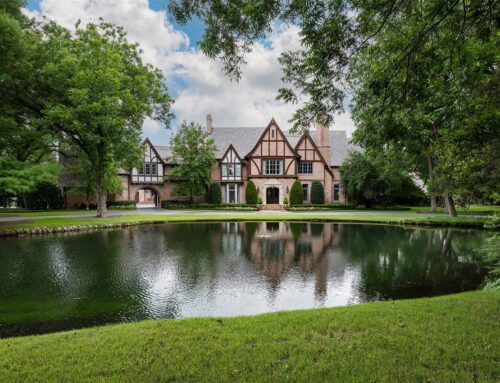Voters in the rest of the city may regard the May 7 “strong mayor” vote as a referendum on whether or not to increase the powers of some remote politician downtown.
But many voters in Preston Hollow are on a first-name basis with the one person who will immediately benefit from a power shift if the measure is approved: Mayor Laura Miller.
In a neighborhood full of CEOs, the prospect of campaigning against the mayor in her own back yard can, opponents of the initiative say, have a chilling effect.
To make their case, opponents of the measure are careful to say they are working against the so-called Blackwood proposal, not the mayor.
“We’re not against Laura Miller,” says Irene Ramirez, a
Ramirez and other opponents say one of their biggest hurdles is getting voters to realize that the measure would institute permanent changes that might not be appealing under a mayor who is not as popular as Miller.
If voters approve the measure, the city charter would no longer call for a city manager, and the mayor would receive the power to do everything from set city budgets to hire and fire the police chief — along with the rest of the city’s 13,000-member workforce. (See accompanying chart for a further breakdown on how the measure would affect certain city government procedures.)
The measure would also shift substantial power from the City Council to the mayor, which accounts for the current City Council’s unanimous opposition to the plan.
But supporters of the strong mayor proposal, including Miller, insist the mayor’s office needs more institutional power in order for the city’s top official to make things happen.
Detractors say having so much power in the hands of one official increases the likelihood of political patronage and outright corruption.
Although she isn’t an elected official, Ramirez knows her way around City Hall, having been appointed to several city boards throughout the years. During a stint on the Community Development Commission, she and other panel members helped determine how federal housing and urban revitalization dollars were distributed in
If voters approve the charter amendment May 7, City Council members would no longer appoint residents such as Ramirez to such boards. Only the mayor could make the appointments.
To Ramirez, that means neighborhood representatives will lose control of a vital governing tool.
“I thought about it quite a while,” she says. “I guess the bottom line for me is that we lose representation on many of the boards and commissions that would actually have a say throughout the city.
“Those are really things that make the quality of life in Dallas,” she says. “It’s important.”
Ramirez is City Council member Lois Finkelman’s appointee to the Coalition for Open Government, which is working to defeat the May 7 proposal. Finkelman, who represents Preston Hollow, is prevented by term limits from running again. She opposes the measure.
The North Dallas Chamber of Commerce, like other area and ethnic chambers, has also come out against the proposal. Chamber president Steve Taylor says the organization’s 500 member companies believe the strong mayor plan puts “way too much power in the hands of one individual.”
“This would not be a good way for us to govern the city,” Taylor says, because it “takes away all your checks and balances” between elected officials and professional staff.
Like many opponents, Taylor says his members also are concerned the proposal was drafted without citizen input. Political novice and attorney Beth Ann Blackwood hired workers to get the requisite 20,000 petition signatures to place the measure on the May ballot. The petition workers were hired with funds donated by a handful of wealthy contributors, some of whom live in the Park Cities and will not be able to vote on it themselves.
“It was not citizen intensive or inclusive,” Taylor says. “Even if we liked it and liked every detail of it, we would probably have some objections over just how it came into being.”
Taylor says he and others might support a different proposal to increase the mayor’s power, albeit less drastically. But those most concerned about Dallas’ business climate say strong mayor systems are fraught with potential for corruption and patronage.
“All of the area and ethnic chambers are opposing this,” Taylor says. “We are the economic development professionals.”
Supporters of the ballot initiative say the measure will improve the city’s business climate because the mayor will be able to cut through red tape and bureaucratic hurdles that hamper existing businesses and make suburbs more appealing to companies that are relocating.
But detractors say improving efficiency at City Hall won’t mean much if it comes at the expense of Dallas’ reputation for clean government.
Says Taylor: “We seem to be focused on everything that’s wrong with our town, but we have a reputation that’s significantly undiminished that we are open and honest government and that should not be undervalued.”
For Ramirez, a strong mayor form of government isn’t appealing if it prevents individual council members from appointing citizens such as her to boards and commissions where the appointees can play a part in local affairs.
“If we lose that, any city where you cut off the people from actually having a hands-on ability to make decisions for their own lives … that’s kind of serious,” she says.






